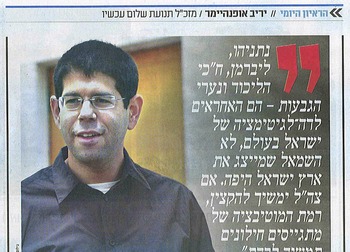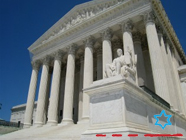 By Amichai Atali
By Amichai Atali
JERUSALEM (AP) -- Israel has ordered the shutdown of a dovish Israeli-Palestinian radio station, officials and the station's operators said on Sunday.
(NOTE: The station's director Mossi Raz is a former director of Peace Now in Israel)
Continue reading NPR / AP: "Israel Shuts Down Dovish Radio Station".

